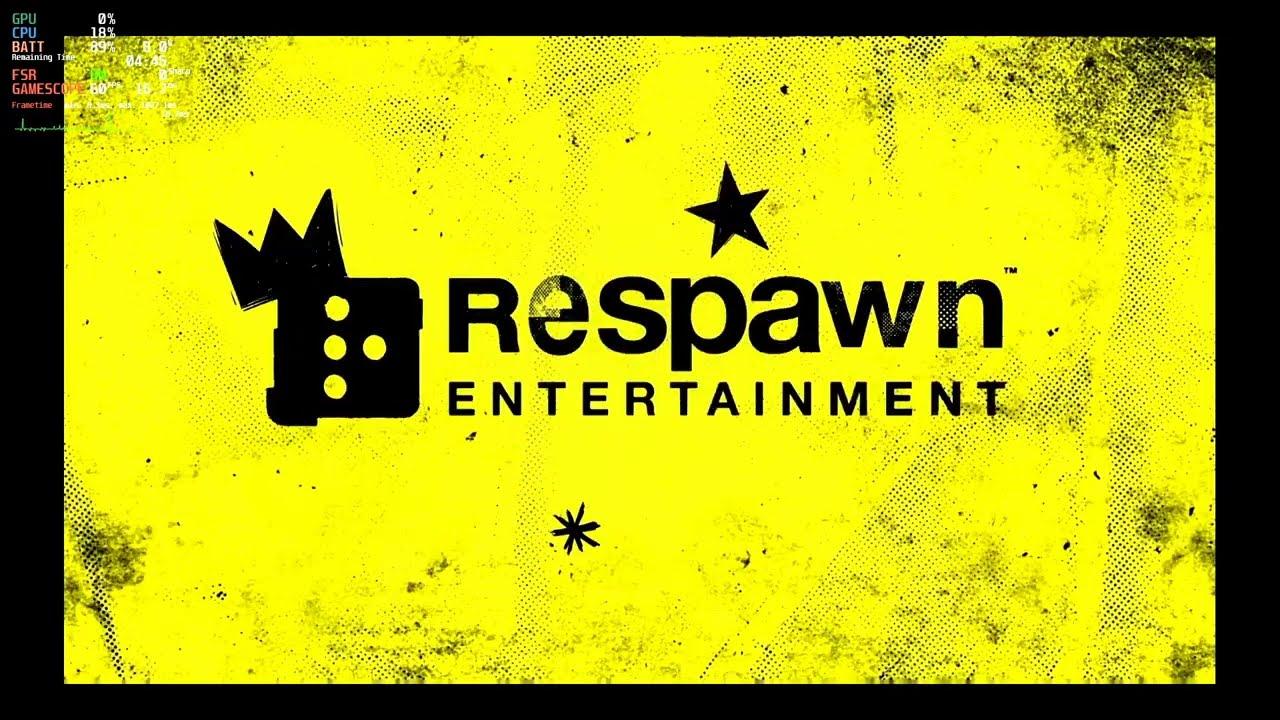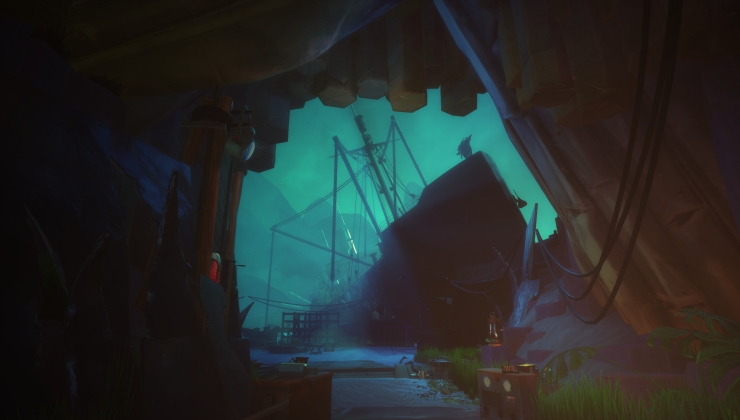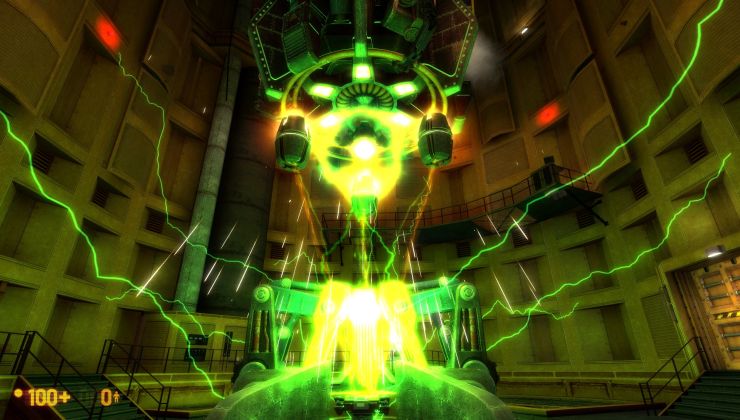Update 15/03/22 - It's now fixed, with no word again from anyone. The EAC file was just put back nearly ~9 hours later.
Even though Apex Legends was marked officially Steam Deck Verified by Valve on March 9, that we covered in an article, it's now been updated and it's broken on Steam Deck and Linux desktops.
It's still not really clear what's going on. No announcement was made previously from any party. Valve didn't say anything, Respawn (the developer) didn't and EA (the publisher) also stayed silent. It just seemed to go through Deck Verified, and showed the whole world it worked as it was properly live on the Steam store and in your Steam Library on Deck. Now, a patch came in and it has removed the Linux Easy Anti-Cheat file so the game will boot you out telling you it's not working.
This is pretty frustrating. We've talked a couple of times now across articles and videos on issues with Deck Verified, and this certainly doesn't help. There's always going to be teething issues with a new platform of course but this isn't even a Top 100 title, Apex is constantly in the Top 10 on Steam. To have it break like this even though it's Deck Verified? What the heck is going on?
It does bring up other questions now too like: how long is the lag between a major game getting an upgrade, and it going through Deck Verified again to check it works? What about smaller games, do they have to wait longer? The list of questions goes on.
Such a shame, as it became an instant favourite of mine and worked so nicely on Deck:

Direct Link
EDIT: The name of the quick fix branch is interesting also. It reads: "temporary test for merge build for EA". The "for EA" part sticks out, almost as if they are only doing this because the publisher told them to.
Last edited by rustybroomhandle on 15 March 2022 at 9:36 am UTC
Quoting: PublicNuisanceIf you give money to a company to play game that uses scumbag DRM don't be surprised when that scumbag DRM screws you over. Don't worry they're having fun spending your money.
Or just hoarding it for the sake of hoarding it, which is what most of them do with most of the money.
Quoting: pleasereadthemanualIt's not just distribution that is protected under copyright, though I'm unsure if you're making this distinction. Unauthorized transcription, translation, performance, and of course, making an unauthorized copy of copyrighted content is copyright infringement.
This is not accurate when it comes to US copyright law. Transcription, translation, and making a second copy of something you own a copy of are all technically legal, as long as the result is not distributed. However, intent to distribute is taken into consideration when looking at these actions from a legal standpoint.* Why translate something unless you intend to distribute the translation? Why make 300 copies of a DVD unless you are intending to distribute them? Copyright holders are usually only concerned about somewhat widespread distribution, though, not giving a translation to three or four people.
Public performance is illegal because it is considered a form of distribution, but private performance is not. Remember that playing a DVD, a Blu-ray, or an MP3 file is performance as well, with the same rules as live performance. So, for example, a group of friends getting together for a party and sitting around playing songs on a guitar and singing is not illegal. Technically, a band performing in a bar, someone singing karaoke at a bar, or someone busking on a street corner without express copyright permission for each song is illegal, but even the RIAA is not usually crazy enough to try to clamp down too much on these things, which actually help promote the material (and the RIAA can be pretty crazy). There are also arrangements that can be made to get permission for some of these things, usually with payment made, to whole catalogs of record labels or groups of copyright holders (like ASCAP).
Also, copyright notices at the beginning of books or especially movies often contain a lot of meaningless drivel that has no legal basis. You can't trust these for accurate information about copyright. Many claim that copyrighted material is 'licensed for private use,' but this language is nonsense. No 'license' is required to do normal things with copyrighted material. According to copyright law you own your legally obtained copy of copyrighted material; you haven't 'licensed' it. You only need a license to do things that copyright law would otherwise disallow, like using one copy of a software program for five different people on five different machines (that is a fairly common software license).
*(Technically, making a copy with intent to distribute is what is illegal, so you don't have to have actually distributed copies yet to be arrested or sued.)
Last edited by CFWhitman on 15 March 2022 at 1:22 pm UTC
Quoting: pleasereadthemanualIt's not just distribution that is protected under copyright, though I'm unsure if you're making this distinction. Unauthorized transcription, translation, performance, and of course, making an unauthorized copy of copyrighted content is copyright infringement. Though transcription sometimes falls under fair use. What do you do when you're downloading something? You're making a copy.No this is IMHO a misunderstanding of copyright. You can do all the transcription, translation and performance all day long without infringing copyright. It's when you distribute any of that to some one else that you violate the copyright, aka you can re-enact Harry Potter in your living room without an audience and not be infringing, but put it in front of an audience in any way and you are potentially in trouble (I say potentially since most courts would not see you performing this for your family or close friends as being infringing).
Quoting: pleasereadthemanualPutting aside whether seeding qualifies as distribution, there are plenty of instances of people being sued just for downloading content. Whether they would actually win that lawsuit, I don't know, but most defendants choose to settle before it reaches the court.Please note that this article is a bit misleading, first they mention that RIAA have won in "in some cases" without further clarifying which or how many and later on they describe that they found the "pirates" by looking at BitTorrent data, so I would still say that the ones that they got damages from in court where the ones using BitTorrent since they could prove that they where distributing and not just downloading.
Also please note that many decided to settle out of court does not prove anything, it just shows that the defendants either used BitTorrent or that they didn't fully understood the law and was afraid (and didn't have access to legal counsel due to the costs involved in the US and Canada).
Quoting: pleasereadthemanualHere's the RIAA, a frequent customer of the court, on what they think:
Quoting: RIAAA long series of court rulings has made it very clear that uploading and downloading copyrighted music without permission on P2P networks constitutes infringement and could be a crime.
And the RIAA are known for lying to their teeth in order to scare people into settle the cases. It's a known scare tactic from their part.
What people should think about is why the RIAA invented the term "piracy" if there had been an actual crime for the activity of just downloading, the way BitTorrent works gave them a massive foothold into suing people but they coined the term long before that.
Disclaimer, I have been active at the Swedish Pirate Party since inception.
Last edited by F.Ultra on 15 March 2022 at 3:08 pm UTC
Quoting: HoriQuoting: pete910And this is why I don't like this relyance we are heading for on wine/proton !Native games break even more often or lag way behind their Windows counterparts or don't have cross-play.
Native FTW !
No thanks.
Proton may not be perfect but it caused way less headaches at least in my experience, and saved me a ton of time (which I was able to spend playing instead of fixing)
As said in a earlier post, I've had the exact opposite experience.
Quoting: F.UltraNo this is IMHO a misunderstanding of copyright. You can do all the transcription, translation and performance all day long without infringing copyright. It's when you distribute any of that to some one else that you violate the copyright, aka you can re-enact Harry Potter in your living room without an audience and not be infringing, but put it in front of an audience in any way and you are potentially in trouble (I say potentially since most courts would not see you performing this for your family or close friends as being infringing).
Well, I can't refute this, as my argument is just based on my impression of the law (which I haven't read). Initially I thought that copyright was only concerned with distribution, but through a lot of research, I came to change my mind recently. I'll have to read my country's Copyright Act (and its various amendments) some day. I will say that I live in Australia, but given that my country has agreed to various international treaties, it's likely the same overall.
Quoting: F.UltraPlease note that this article is a bit misleading, first they mention that RIAA have won in "in some cases" without further clarifying which or how many and later on they describe that they found the "pirates" by looking at BitTorrent data, so I would still say that the ones that they got damages from in court where the ones using BitTorrent since they could prove that they where distributing and not just downloading.
I read the later sections of this article after posting it and realized that I was undermining my own point, as it references BitTorrent in the edit, but ended up leaving it in as a counter-example, not being able to find any other sources to validate my argument.
Quoting: F.UltraAlso please note that many decided to settle out of court does not prove anything, it just shows that the defendants either used BitTorrent or that they didn't fully understood the law and was afraid (and didn't have access to legal counsel due to the costs involved in the US and Canada).
The RIAA is most likely who the average file sharer is going up against, because they're active and fanatical enough to go after everyone. My point is, even if they take you on for something they probably wouldn't win, they could still automatically win a settlement for a few thousand dollars because the alternative—paying for legal counsel for an unknown period of time—would be far more costly. It's not necessarily about what's judged to be legally correct, and instead more about what is practical.
Copyright infringement becomes a civil dispute in most cases, which means the copyright holder is the one who needs to bring the charge against an offender. Most independent creators don't have the capital for that sort of litigation—putting aside whether they would feel the need to pursue these matters—resulting in only large corporations and organizations such as the Author's Guild making regular appearances at the court. Practically, the only entities that are legally able to enforce their copyright are mostly large entities for whom copyright infringement isn't as potentially damaging. While I haven't looked into the details myself, it would not surprise me if this was simply another exercise in generating revenue for the plaintiff's company rather than an attempt to protect its commercial interests.
The average file sharer is in no position to defend themselves in court over sharing files, just as the average creator is in no position to be bringing these claims against the average file sharer.
Quoting: F.UltraAnd the RIAA are known for lying to their teeth in order to scare people into settle the cases. It's a known scare tactic from their part.I don't think they're a reliable source of information—and the footer on the page I linked says as much that this is just babble and not legally enforceable, but if the RIAA really believes these things, then they'd be willing to take people to court over it.
What people should think about is why the RIAA invented the term "piracy" if there had been an actual crime for the activity of just downloading, the way BitTorrent works gave them a massive foothold into suing people but they coined the term long before that.
Disclaimer, I have been active at the Swedish Pirate Party since inception.
I don't respect the usage of the word "piracy" in relation to copyright infringement (and likely copy protection circumvention as well, though this is a separate issue) as it is hyperbolic and prone to causing misunderstandings, so I don't use it in most instances. It kind of shocks me how willing people are to accept the premise of the word, but I think this is helped by some copyright infringers finding it funny (The Pirate Bay, for example).
Evidently, at least one court also thinks that using this word and words like it unfairly biases a jury. But I don't think we're going to be purging "piracy" from the public's vocabulary any time soon.
How old is the Swedish Pirate Party, anyway?
Quoting: pleasereadthemanualHow old is the Swedish Pirate Party, anyway?They're the original crew of political swashbucklers.
Quoting: WikipediaThe first Pirate Party to be established was the Pirate Party of Sweden (Swedish: Piratpartiet), whose website was launched on 1 January 2006..."
Time for a simple extra filter, Supports Deck or somesuch, to indicate that the dev commits to providing full support for running the game in question on the deck.
Last edited by emphy on 15 March 2022 at 11:58 pm UTC










See more from me